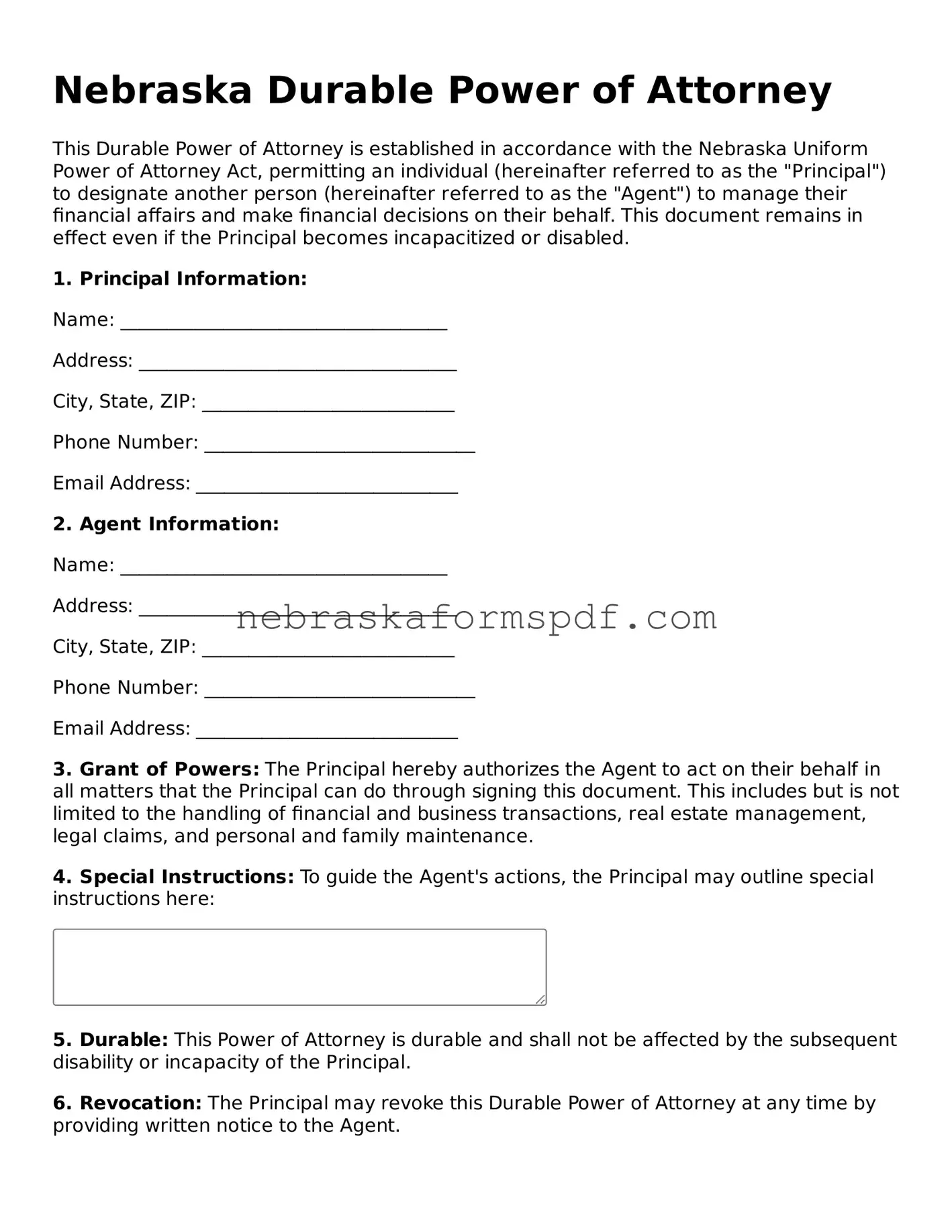Nebraska Durable Power of Attorney
This Durable Power of Attorney is established in accordance with the Nebraska Uniform Power of Attorney Act, permitting an individual (hereinafter referred to as the "Principal") to designate another person (hereinafter referred to as the "Agent") to manage their financial affairs and make financial decisions on their behalf. This document remains in effect even if the Principal becomes incapacitized or disabled.
1. Principal Information:
Name: ___________________________________
Address: __________________________________
City, State, ZIP: ___________________________
Phone Number: _____________________________
Email Address: ____________________________
2. Agent Information:
Name: ___________________________________
Address: __________________________________
City, State, ZIP: ___________________________
Phone Number: _____________________________
Email Address: ____________________________
3. Grant of Powers: The Principal hereby authorizes the Agent to act on their behalf in all matters that the Principal can do through signing this document. This includes but is not limited to the handling of financial and business transactions, real estate management, legal claims, and personal and family maintenance.
4. Special Instructions: To guide the Agent's actions, the Principal may outline special instructions here:
5. Durable: This Power of Attorney is durable and shall not be affected by the subsequent disability or incapacity of the Principal.
6. Revocation: The Principal may revoke this Durable Power of Attorney at any time by providing written notice to the Agent.
7. Governing Law: This Durable Power of Attorney is governed in accordance to the laws of the State of Nebraska.
8. Signatures: This document must be signed by the Principal and either witnessed by two adults who meet the requirements as per Nebraska law or notarized to be effective.
Principal's Signature: ___________________________ Date: ___________
Agent's Signature: _____________________________ Date: ___________
Witness 1 Signature: ___________________________ Date: ___________
Printed Name: __________________________________
Witness 2 Signature: ___________________________ Date: ___________
Printed Name: __________________________________
Or
Notary Acknowledgment
State of Nebraska )
County of _________ )
On this day, _________, in the year __________, before me appeared _________________________, known to me (or satisfactorily proven) to be the person whose name is subscribed to the within instrument, and acknowledged that they executed the same for the purposes therein contained.
In witness whereof, I hereunto set my hand and official seal.
Notary Public: __________________________________
My commission expires: _________________________

